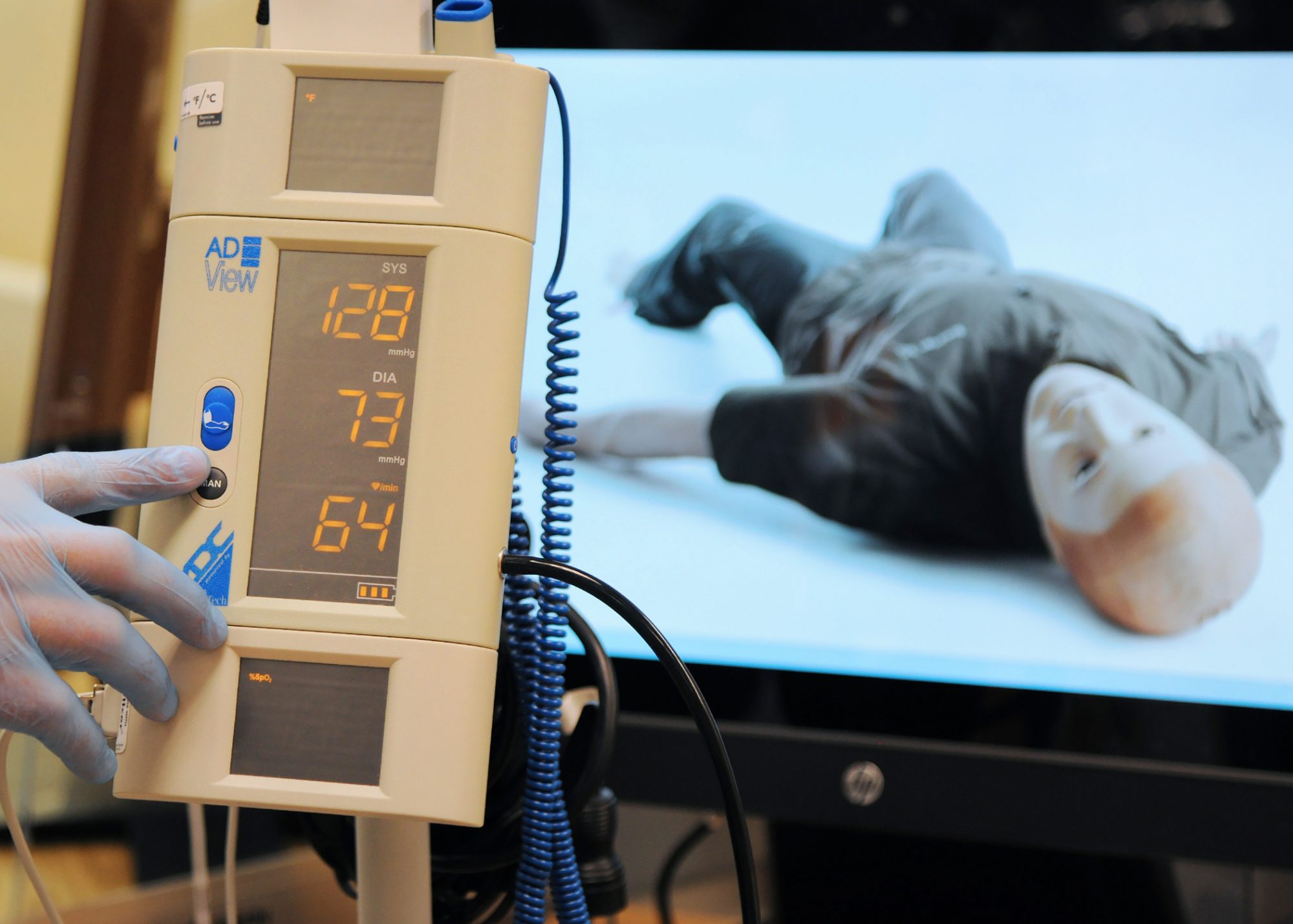Nursing Simulation Labs
The mission of the LRC is to enhance student learning in a safe, innovative environment while promoting competence in all aspects of professional nursing practice. The LRC endeavors to design learning activities that replicate real-life clinical situations which are evidence based and student centered, thereby assisting students in their enhancement of critical thinking, clinical reasoning and decision-making skills. Faculty who participate in simulated learning experiences provide students with constructive feedback regarding individual and team performance through debriefing sessions and empower students with the ability to self-analyze their own performance during the reflective process. All simulated learning experiences are designed by faculty in collaboration with the Coordinator for Simulation and Interdisciplinary Practice.
Facilities and Equipment
The Learning Resource Center (LRC) is located on UNC Charlotte campus, 3rd floor of the College of Health and Human Service building. The LRC facilities simulate a hospital, home and primary care settings, and includes the Marilyn Greene Smith Living Learning Laboratory, equipped to simulate a home setting. It is fully equipped for students to practice clinical nursing skills at all levels of nursing practice that may occur with diverse clients across the lifespan.

Equipment Includes:
-
Laerdal SimMan Classice
-
Noelle Birthing Simulator
-
SimBaby
-
Toddler Hal
-
SimMan Essential
-
Nursing Kelly
-
SMART Technology Sympodium
-
Examination Tables
-
Wall-Mounted otoscopes and ophthalmoscopes
-
Variety of assistive devices

Certified Healthcare Simulation Experts
The School of Nursing (SON) currently employs three Certified Healthcare Simulation Experts (CHSE). According to the Society for Simulation in Healthcare, there are fewer than 1,200 Certified Healthcare Simulation Experts in the United States.
Benefits of Simulation
According to the Agency for Healthcare Research and Quality (2018), simulation is a strategy, not a technology. Moreover, National Council State Boards of Nursing (2015) report that simulation provides students the opportunity to engage in more experiential learning, enhances their use of technology, places more emphasis on outcomes versus process and provides an avenue to incorporate more evidence-based strategies throughout the curriculum. Consequently, simulation outcomes include improved patient safety, enhanced preparation of new nursing graduates, and reduced reliance on traditional clinical sites, while supporting innovation in teaching strategies.